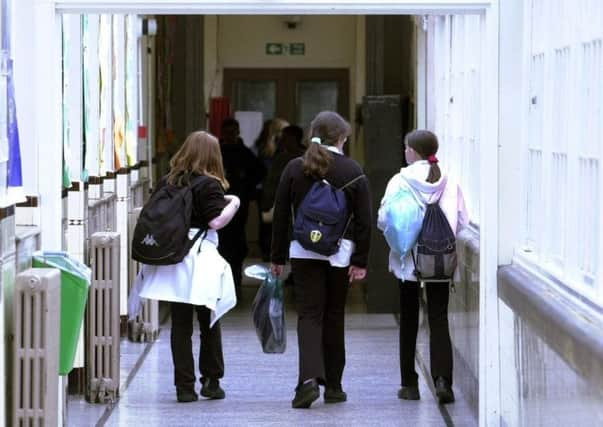Warning of poverty in country's classrooms


Primary school leaders, speaking at the National Education Union conference, said they are seeing shocking examples of poverty in the country’s classrooms.
Several headteachers, some giving only their first names, spoke openly about what they had seen, from malnourished children to those who wear their uniform at the weekend because they have no clothes.
Advertisement
Hide AdAdvertisement
Hide AdOne teacher said that education issues such as league table positions are fast becoming secondary to dealing with the impact of financial hardship among pupils, while another, who gave her name only as Lucy, spoke of children pocketing free food.
“In some establishments I would imagine that would be called stealing, but in ours it’s called survival,” she said.
She described seeing children from a nearby affluent secondary school and comparing them to youngsters who had been to her school.
“My children who have gone from me up to the local secondary school have grey skin, poor teeth, poor hair, poor nails, they are smaller, they are thinner,” she said.
Advertisement
Hide AdAdvertisement
Hide AdThe Government said it is taking measures to close the attainment gap and to support disadvantaged children.
In 2015/16, there were four million children in the UK living in poverty, according to the Child Poverty Action Group (CPAG) - equivalent to nine in every classroom of 30 pupils.
But a poll of around 900 NEU members found that 87 per cent think that poverty is having a significant impact on the learning of their pupils.
Howard Payne, from a Portsmouth primary school, said he had opened his school during the snow three weeks ago because he was concerned about youngsters missing out on a hot meal that day. Around 45 per cent of pupils came in, many of who were eligible for free dinners, he said.
Advertisement
Hide AdAdvertisement
Hide AdA DfE spokesman said they have launched a social mobility action plan, which sets out measures to close the attainment gap between disadvantaged students and their classmates and targets areas that need the most support.
He added: “Alongside this we continue to support the country’s most disadvantaged children through free school meals, the £2.5bn funding given to schools through the Pupil Premium to support their education and the recently announced a £26m investment to kick-start or improve breakfast clubs in at least 1,700 schools.”